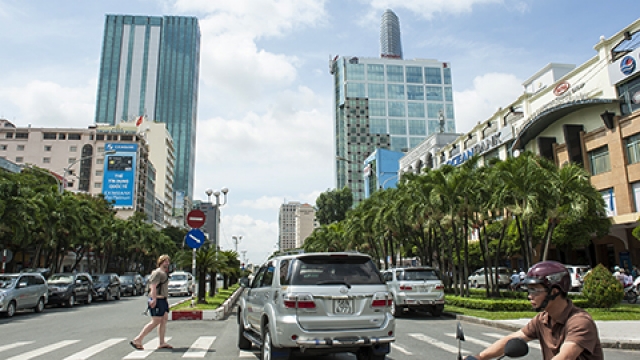Vietnam continues to slowly but steadily develop and will be Asia-Pacific’s next emerging market over the next five to ten years, according to the latest report from Cushman & Wakefield entitled “Betting on Asia Pacific’s Next Core Cities”.

Cushman & Wakefield's "Betting on Asia Pacific's Next Core Cities" report tags Vietnam as next emerging market in region.
Cushman & Wakefield selected the next core and emerging markets in the region that will remain relevant and dominant over the next five to ten years.
As an emerging market, Vietnam displays many of the characteristics of its Asia-Pacific neighbors but perhaps is not as well understood.
Factors such as legal titles in the form of 50-year land leases granted by the State, a regulatory and tax environment that facilitates the placement of foreign capital, a real estate market cycle that is now at a stage of controlled expansion without the threat of chronic oversupply, and Grade A office yields that are in line with risk-free rate spreads seen in core markets at 200-300 basis points above five-year bonds stand out as examples.
In addition, limited country and political risk, a steady inflation rate of 2-3 per cent per annum, and a currency that has devalued on average by no more than 2 per cent per year over the last ten years provide evidence of the stability of Vietnam’s current economic situation.
Mr. Ben Gray, Director of Capital Markets at Cushman & Wakefield Vietnam, said the adoption of revised banking regulations bringing Vietnam in line with Basel III sees capital controls being placed on banks and developers.
The regulations, he went on, have acted as a catalyst for real estate developers to begin seeking partners, both active and passive, to move their real estate business forward. “We expect to see more cross-border investment activity as a result,” he said.
Ms. Sigrid Zialcita, Managing Director, Asia Pacific Research, at Cushman & Wakefield, indicated that Asia-Pacific remains a viable investment target for global capital.
“However, against a backdrop of limited availability of core properties, abundance of capital and spiraling property prices, we are seeing more buyers and sellers of real estate recalibrating their investment strategies and seeking out alternative investment targets,” she said.
Investment activity in Asia-Pacific has been robust in 2017. As noted in its annual The Atlas Summary 2017 report, real estate investment volumes in Asia-Pacific are expected to hit $611 billion this year, according to Ms. Zialcita.
Data from Real Capital Analytics (RCA) indicates a total investment value of close to $136 billion in the region in the first quarter of this year, which is a record quarter high. Pending any unforeseen circumstances in the months ahead, this momentum is expected to continue and 2017 will be a banner year for real estate investments in Asia-Pacific.
VN Economic Times